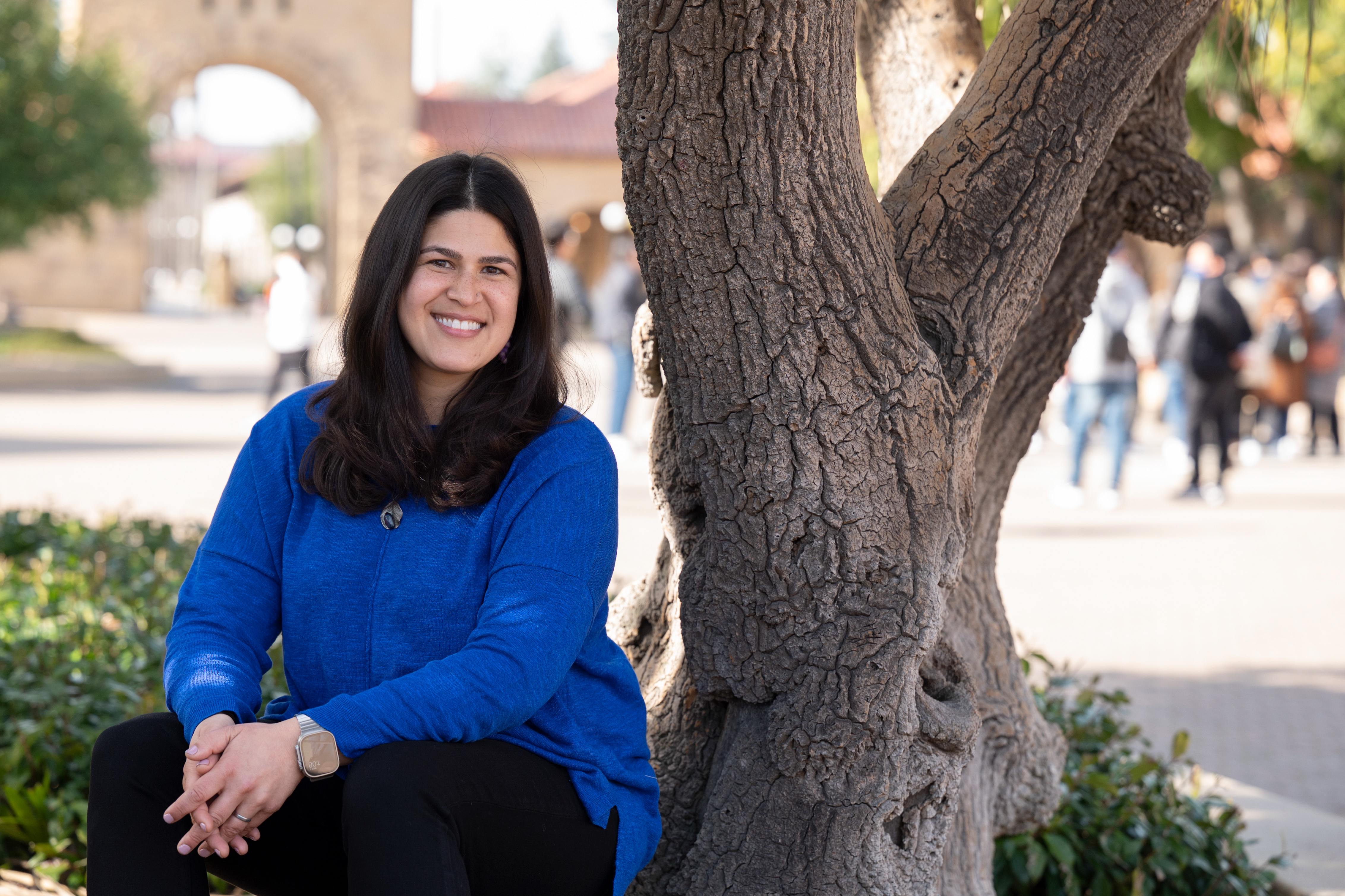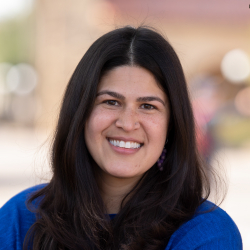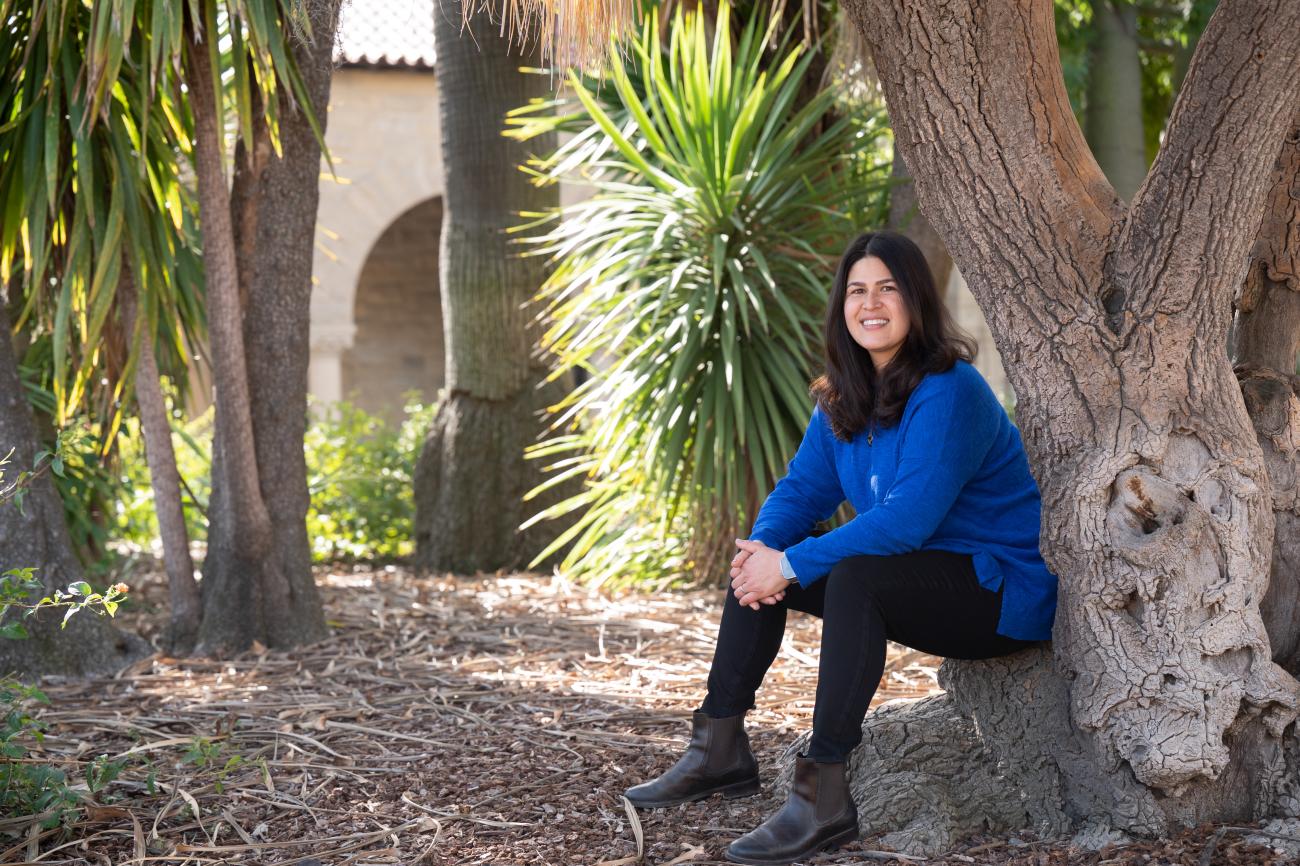
Monica Sircar
What drew you to study education?
I first encountered the concept of “education research” during my master’s program. I had already taught for three years and was constantly reflecting on my own practice, albeit as a bit of an "island." When I started my master’s program, it was exhilarating to finally have language and a community in which to make sense of my early teaching experiences and to be involved in education research. I still wanted to return to the classroom after my master’s, but those experiences with research planted seeds in my mind of ways I might dig deeper into teaching and learning in the future. As I grew into an experienced science educator with a passion for curriculum design, I found myself craving that opportunity for focused graduate study.
What were you doing prior to applying to the GSE?
I was a middle and high school science teacher in the Bay Area for almost a decade. I then moved into full-time science curriculum development at my school before taking time off to welcome our first child. Immediately prior to entering the GSE, I was a writer on a curriculum team developing a new 9th grade biology curriculum at BSCS Science Learning.
What was the focus of your master’s or qualifying project?
I'm currently wrapping up my qualifying project, where I've been following the curriculum work of a team of phenomenal, reflective science teachers as they attempt to center equity in the design of several biology units. It has been a privilege to get to learn alongside these practitioners as I build my skills and knowledge as a researcher. I met these teachers through a graduate assistantship with the Hollyhock Fellowship, a program run through the Center to Support Excellence in Teaching (CSET). If you're interested in working with and for teachers during your time at the GSE, CSET is a wonderful community to get engaged with!
Are there any particular highlights of your time at Stanford?
The people! I have caring, responsive advisors who support both my growth and my well-being as a whole person. I am also part of several small communities of graduate students who inspire me, help me seek balance, and share joy through this journey.
What impact do you hope your work will have?
I hope to use my skills to support and advocate for teachers through strong curriculum materials and professional learning opportunities, and to leverage science learning toward a world that is curious, healthy, and just.

What advice do you have for prospective students on the application process?
Okay, vulnerability moment here: I applied three times before I was admitted! Remember that the results of any admissions cycle are due to many factors, including ones outside your control, and they are not a statement of your fundamental capacity to succeed as a graduate student. Put another way, if one application year “isn't your year,” don't be discouraged from trying again! Each time I applied, I refined my statement of purpose to highlight the questions driving me towards doctoral work, narrate how my experiences inform and prepare me, and envision how my experience at Stanford would move me forward. Developing my statement of purpose was a powerful experience even in the years I wasn't admitted, as the exercise of refining my vision helped me notice other available opportunities to grow in the direction I was craving (which I suspect further strengthened my subsequent applications).
Any tips for incoming students to help them get the most from their time here?
“Getting the most from your time here” does not mean “doing the most” – in fact, those two pull in opposite directions. There are so many opportunities to be involved here. Have a sense of the top priorities for *you* (and your family, if you come with an entourage). Use those to guide when you say “yes” and “no.” Saying yes to a lean list of commitments that touch your top priorities will feel like “getting more” out of your experience than saying yes to a smörgåsbord of things and being stretched thin.
Any other thoughts you’d like to share?
I started the program as the parent of a young child. I was happy to connect early with several other folks in the GSE that came with (or subsequently acquired) children during their time here. Balancing parenthood with graduate study brings its own unique challenges (and benefits!). I find it grounding to be in community with other student-parents as we navigate the doctoral journey together.

Photos by Rod Searcey
